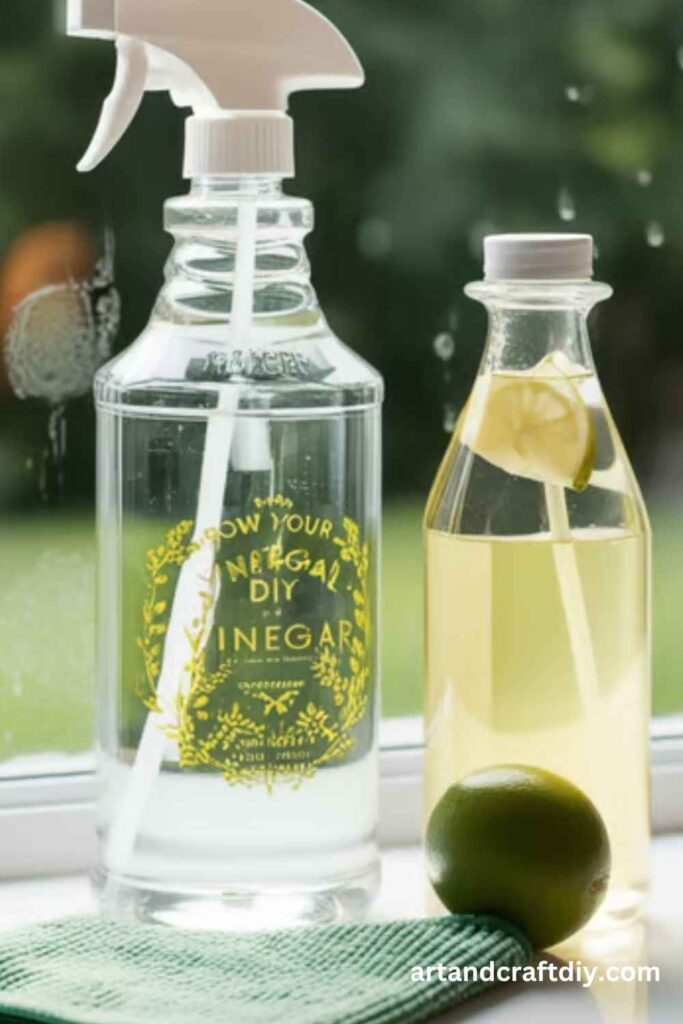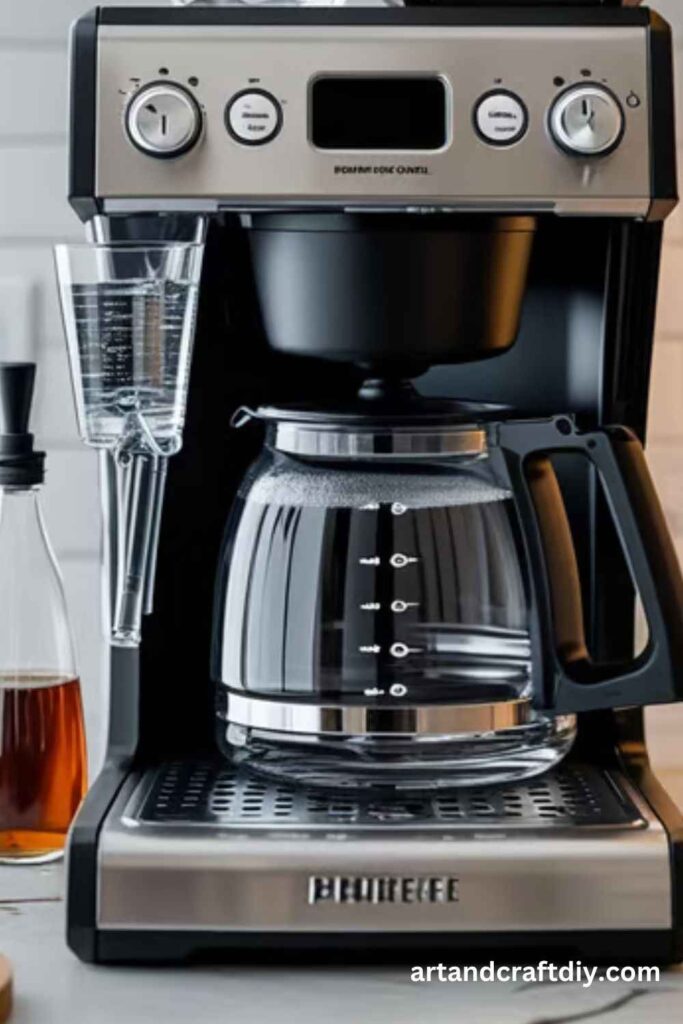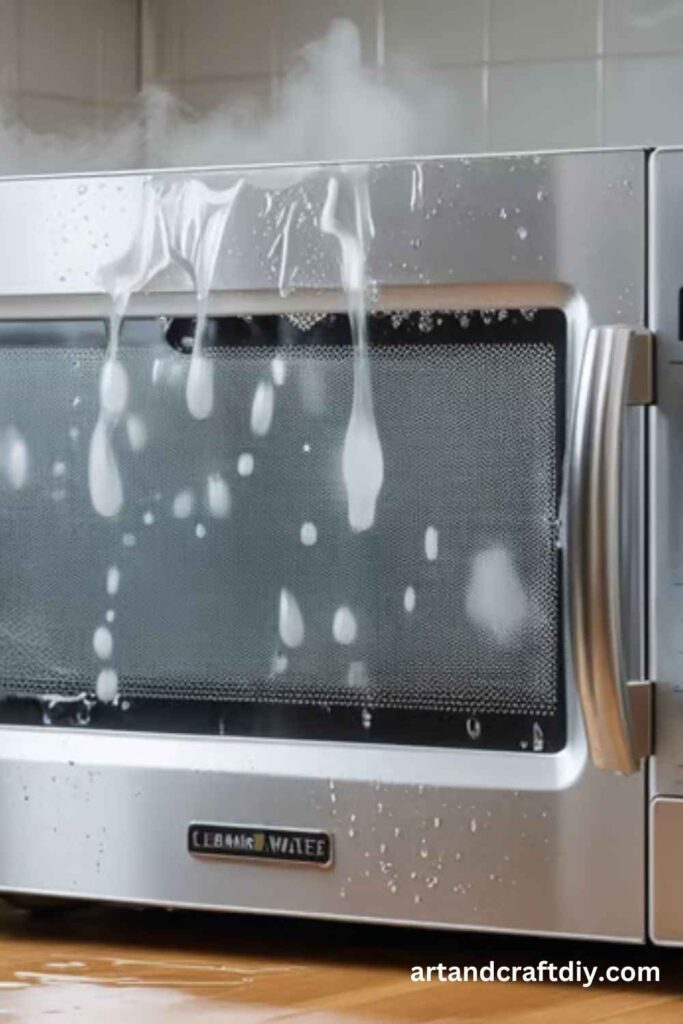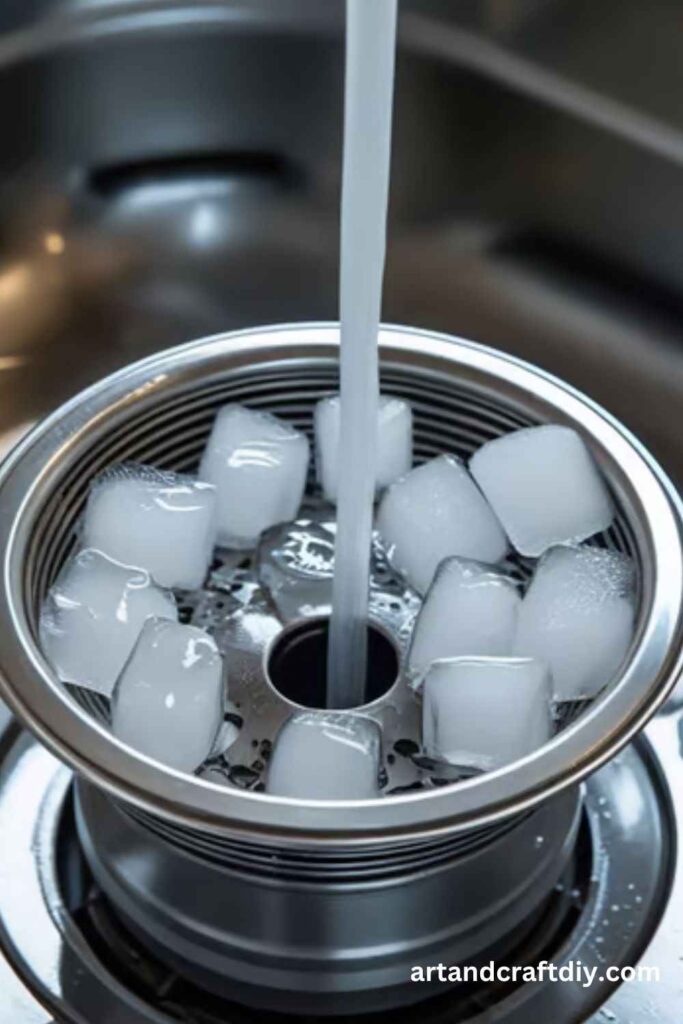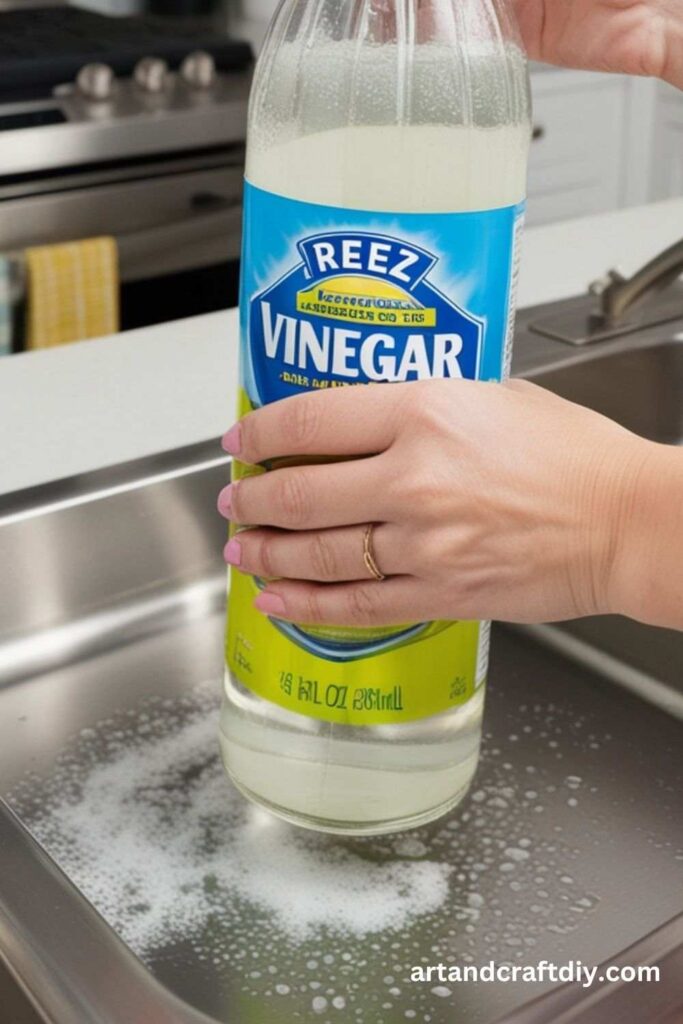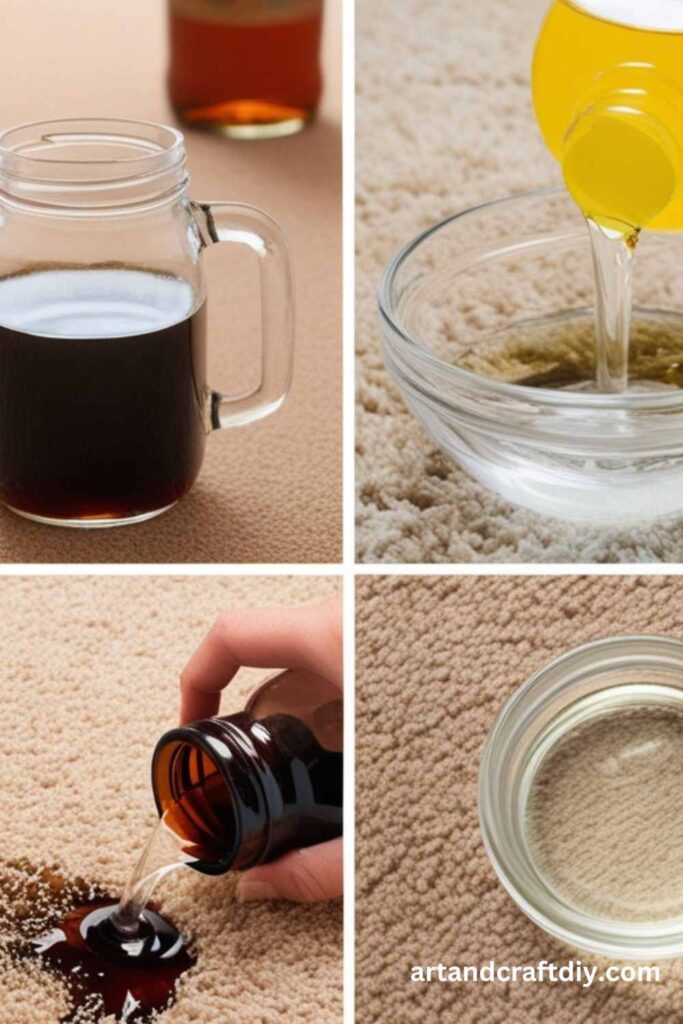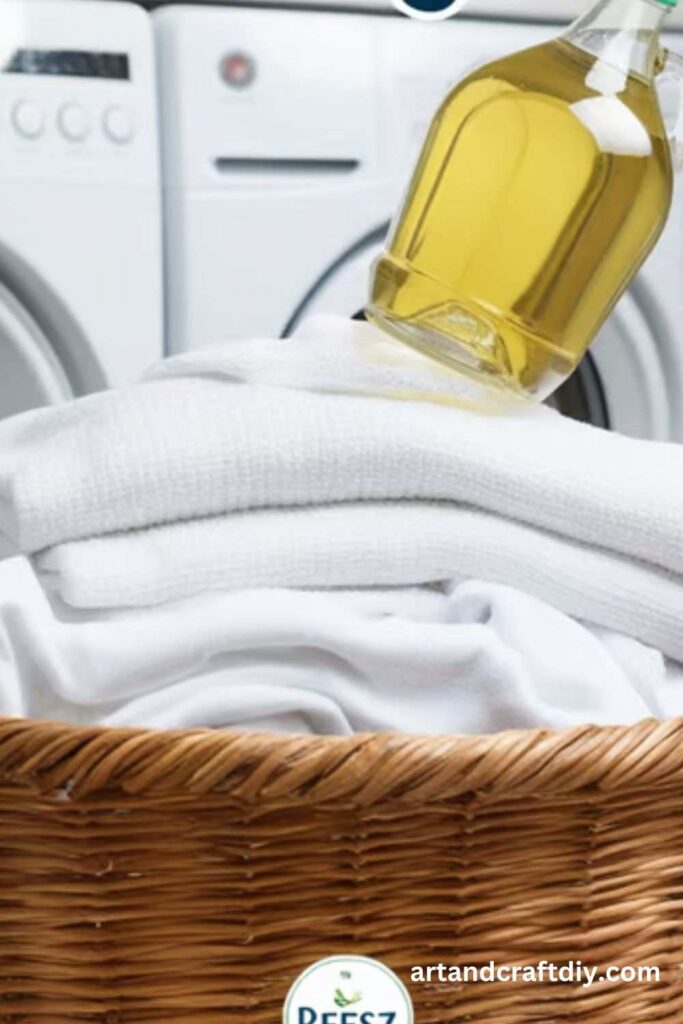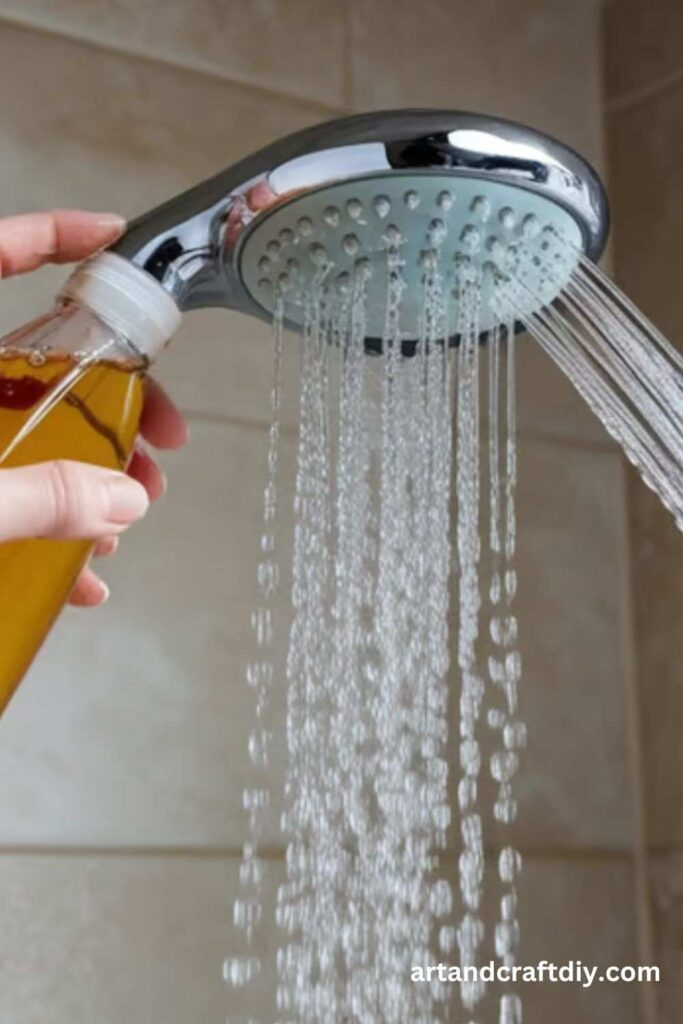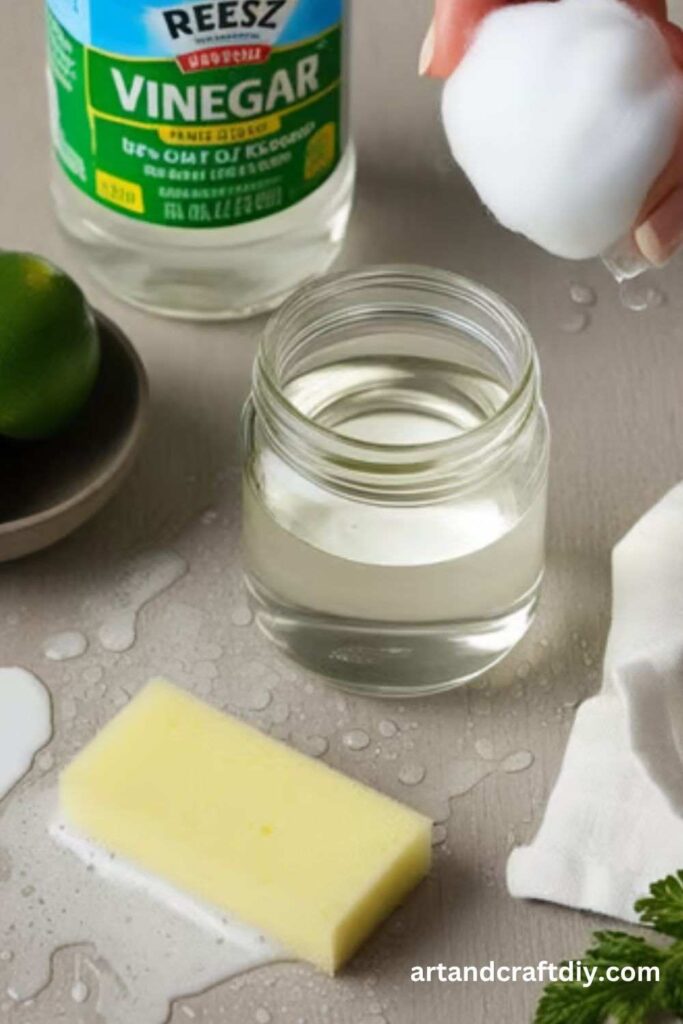Vinegar is a versatile, natural, and eco-friendly cleaner that has been used for centuries to tackle household messes. Known for its non-toxic and antibacterial properties, vinegar is an excellent alternative to harsh chemical cleaners, making it a safe choice for homes with children and pets. It is also an affordable and readily available solution for various cleaning tasks. Different types of vinegar, such as white vinegar and apple cider vinegar, can be used depending on the cleaning needs. White vinegar, with its high acidity, is particularly effective for disinfecting surfaces, removing stains, and eliminating odors. Apple cider vinegar, while milder, is great for deodorizing and cutting through grease. From descaling coffee makers to freshening up laundry, vinegar cleaning hacks can simplify household chores while reducing exposure to synthetic chemicals.
Vinegar is a powerhouse when it comes to natural cleaning, offering a safe and eco-friendly alternative to commercial chemical-based cleaners. Its acidic nature makes it highly effective at breaking down grime, cutting through grease, dissolving mineral deposits, and eliminating unpleasant odors. Unlike conventional cleaners that may contain harmful toxins, vinegar is non-toxic, biodegradable, and safe for use around children, pets, and those with sensitivities to strong chemicals. Additionally, it has natural antibacterial and antifungal properties, making it an excellent choice for disinfecting surfaces.
Vinegar Cleaning Hacks
Vinegar is a powerful, eco-friendly cleaning agent that can tackle dirt, grime, and odors around the house. Its natural acidity makes it effective for disinfecting surfaces, removing stains, and even unclogging drains. Whether you’re freshening up laundry, eliminating soap scum, or deodorizing your fridge, vinegar is a budget-friendly alternative to harsh chemical cleaners. Best of all, it’s safe for most surfaces and non-toxic for pets and kids. Ready to transform your cleaning routine? Try these simple Vinegar Cleaning Hacks!
Streak-Free Window Cleaner
Vinegar cuts through grime and leaves windows sparkling without streaks.
Materials:
- 1 cup white vinegar
- 1 cup water
- A spray bottle
- A microfiber cloth or newspaper
Steps:
- Mix equal parts vinegar and water in a spray bottle.
- Spray onto windows and let sit for a few seconds.
- Wipe away with a microfiber cloth or crumpled newspaper for a streak-free shine.
Deep-Clean Your Coffee Maker
Over time, coffee makers can build up mineral deposits and bacteria. Vinegar effectively removes both!
Materials:
- 2 cups white vinegar
- Water
- A coffee filter
Steps:
- Fill the coffee maker’s reservoir with equal parts vinegar and water.
- Run a brewing cycle halfway, then pause for 30 minutes.
- Resume the cycle and discard the solution.
- Run two more cycles with just water to remove any vinegar residue.
Freshen Up Your Microwave
Remove food splatters and odors in minutes with vinegar steam.
Materials:
- 1 cup water
- ½ cup white vinegar
- A microwave-safe bowl
- A sponge or cloth
Steps:
- Combine vinegar and water in a microwave-safe bowl.
- Microwave on high for 5 minutes.
- Let it sit for a few minutes before opening.
- Wipe down the interior with a sponge—the grime will come off easily!
Deodorize and Clean Your Garbage Disposal
Vinegar breaks down gunk and eliminates bad odors in your disposal.
Materials:
- 1 cup white vinegar
- ½ cup baking soda
- Ice cubes
- Lemon peel (optional)
Steps:
- Pour baking soda down the drain.
- Follow with vinegar and let it fizz for 5-10 minutes.
- Flush with hot water.
- Drop ice cubes and lemon peel into the disposal and run it to sharpen the blades and leave a fresh scent.
Remove Hard Water Stains from Faucets
Vinegar dissolves mineral buildup and restores shine.
Materials:
- White vinegar
- A plastic bag
- A rubber band
- A scrub brush or cloth
Steps:
- Fill a plastic bag with vinegar and secure it around the faucet head with a rubber band.
- Let it soak for 30 minutes to an hour.
- Remove the bag and scrub away any remaining deposits.
- Rinse with water and dry with a cloth.
Make Stainless Steel Shine
Vinegar removes fingerprints and streaks from stainless steel appliances.
Materials:
- White vinegar
- A spray bottle
- A microfiber cloth
Steps:
- Spray vinegar directly onto stainless steel surfaces.
- Wipe with a microfiber cloth, following the grain.
- For extra shine, follow up with a few drops of olive oil on another cloth.
Remove Carpet Stains
Vinegar lifts stains and neutralizes odors from carpets.
Materials:
- 1 cup white vinegar
- 2 cups warm water
- 1 tablespoon dish soap
- A spray bottle
- A clean cloth
Steps:
- Mix vinegar, water, and dish soap in a spray bottle.
- Spray onto the stain and let sit for 5-10 minutes.
- Blot with a clean cloth until the stain lifts.
- Rinse with water and blot dry.
Brighten Whites in Laundry
Vinegar removes dinginess and freshens clothes.
Materials:
- 1 cup white vinegar
- Laundry detergent
Steps:
- Add vinegar to the washing machine during the rinse cycle.
- Wash as usual.
- Enjoy fresher, brighter whites!
Unclog Showerheads
Vinegar dissolves hard water buildup that clogs showerheads.
Materials:
- White vinegar
- A plastic bag
- A rubber band
Steps:
- Fill a plastic bag with vinegar and tie it around the showerhead.
- Let it soak for an hour.
- Remove, scrub with a toothbrush, and rinse with water.
Remove Sticky Residue from Labels
Vinegar breaks down the glue from price tags and stickers.
Materials:
- White vinegar
- A sponge or cloth
Steps:
- Soak a cloth in vinegar and press it against the sticky area.
- Let it sit for a few minutes.
- Wipe away the residue easily.
Deodorize Shoes
Vinegar kills bacteria that cause shoe odor.
Materials:
- White vinegar
- A spray bottle
Steps:
- Lightly spray the inside of shoes with vinegar.
- Let air dry overnight.
- Odors will be gone by morning!
Clean Greasy Kitchen Cabinets
Vinegar cuts through built-up kitchen grease.
Materials:
- 1 cup white vinegar
- 1 cup warm water
- A microfiber cloth
Steps:
- Mix vinegar and water in a bowl.
- Dip a cloth into the solution and wipe down cabinets.
- Rinse with a damp cloth and dry.
Remove Water Rings from Wood
Vinegar restores wood surfaces damaged by water rings.
Materials:
- Equal parts vinegar and olive oil
- A microfiber cloth
Steps:
- Dip a cloth in the vinegar and oil mixture.
- Rub in the direction of the wood grain until the ring disappears.
- Buff with a dry cloth.
Deodorize the Fridge
Vinegar eliminates lingering fridge smells.
Materials:
- White vinegar
- A cloth
Steps:
- Wipe down fridge shelves with a vinegar-soaked cloth.
- Let dry before restocking food.
Clean and Disinfect Cutting Boards
Vinegar sanitizes wooden and plastic cutting boards.
Materials:
- White vinegar
- A sponge
Steps:
- Pour vinegar directly onto the cutting board.
- Scrub with a sponge.
- Rinse with warm water.
Clean Cloudy Glassware
Vinegar dissolves hard water deposits that make glassware look dull.
Materials:
- 1 cup white vinegar
- A bowl
- A soft cloth or sponge
Steps:
- Soak glassware in a bowl of vinegar for 5-10 minutes.
- Scrub gently with a sponge.
- Rinse thoroughly and dry with a clean cloth.
Remove Soap Scum from Shower Doors
Vinegar cuts through soap residue and restores clarity.
Materials:
- 1 cup white vinegar
- 1 cup dish soap
- A spray bottle
- A sponge
Steps:
- Heat vinegar until warm and mix with dish soap in a spray bottle.
- Spray onto shower doors and let sit for 15 minutes.
- Scrub with a sponge and rinse with warm water.
Clean Blinds Easily
Vinegar helps remove dust and grime from window blinds.
Materials:
- ½ cup white vinegar
- ½ cup water
- A microfiber cloth or an old sock
Steps:
- Mix vinegar and water in a bowl.
- Dip a cloth or sock in the mixture and wring out excess liquid.
- Wipe each blind slat individually.
Refresh Your Mattress
Vinegar removes odors and disinfects your mattress.
Materials:
- 1 cup white vinegar
- 1 cup water
- A spray bottle
- Baking soda (optional)
Steps:
- Lightly spray your mattress with the vinegar-water mixture.
- Let it air dry completely.
- For deep cleaning, sprinkle baking soda after spraying, let sit for 30 minutes, then vacuum it up.
Remove Rust from Tools
Vinegar dissolves rust and restores metal tools.
Materials:
- White vinegar
- A bowl
- A scrub brush
Steps:
- Soak rusty tools in a bowl of vinegar for a few hours.
- Scrub with a brush to remove rust.
- Rinse and dry thoroughly to prevent future rusting.
Eliminate Pet Odors from Carpets
Vinegar neutralizes pet urine odors and stains.
Materials:
- 1 cup white vinegar
- 2 cups warm water
- ½ cup baking soda
- A clean cloth
Steps:
- Blot the stain with a dry cloth.
- Mix vinegar and water, then pour onto the stain.
- Sprinkle baking soda on top and let it fizz.
- Once dry, vacuum up the baking soda.
Remove Sweat Stains from Clothes
Vinegar breaks down sweat and deodorant stains.
Materials:
- 1 cup white vinegar
- Warm water
- A soft brush
Steps:
- Soak stained clothing in a mixture of vinegar and warm water for 30 minutes.
- Scrub gently with a brush.
- Wash as usual.
Disinfect Kids’ Toys
Vinegar is a safe and natural way to clean toys.
Materials:
- 1 cup white vinegar
- 1 gallon warm water
- A sponge or cloth
Steps:
- Mix vinegar and water in a large bowl or bucket.
- Soak plastic toys or wipe down larger toys with a cloth.
- Let air dry—no need to rinse!
Get Rid of Ants
Vinegar disrupts ant trails and keeps them away.
Materials:
- 1 cup white vinegar
- 1 cup water
- A spray bottle
Steps:
- Mix vinegar and water in a spray bottle.
- Spray along entry points, windowsills, and areas where you see ants.
- Repeat daily until ants stop appearing.
Clean Your Dishwasher
Vinegar breaks down grease, limescale, and odors inside your dishwasher.
Materials:
- 1 cup white vinegar
Steps:
- Place a cup of vinegar in the top rack of an empty dishwasher.
- Run a hot water cycle.
- Enjoy a fresher, cleaner dishwasher!
Shine Your Car’s Interior
Vinegar cuts through dust and grime inside your car.
Materials:
- 1 cup white vinegar
- 1 cup water
- A microfiber cloth
Steps:
- Mix vinegar and water in a spray bottle.
- Spray onto car surfaces like dashboards and door panels.
- Wipe clean with a microfiber cloth.
Kill Weeds Naturally
Vinegar is an eco-friendly weed killer.
Materials:
- 2 cups white vinegar
- A spray bottle
Steps:
- Pour vinegar into a spray bottle.
- Spray directly onto weeds (avoid surrounding plants).
- Repeat as needed.
Clean Bathroom Tiles and Grout
Vinegar removes mold, mildew, and grime from grout.
Materials:
- 1 cup white vinegar
- 1 cup warm water
- A scrub brush or old toothbrush
Steps:
- Mix vinegar and water in a spray bottle.
- Spray onto tiles and grout, let sit for 10 minutes.
- Scrub with a brush and rinse with water.
Keep Flowers Fresh Longer
Vinegar prevents bacteria from spoiling cut flowers.
Materials:
- 2 tablespoons white vinegar
- 1 teaspoon sugar
- A vase of water
Steps:
- Mix vinegar and sugar into the vase water.
- Trim flower stems and place them in the vase.
- Change the solution every 2 days for longer-lasting flowers.
Clean Burnt Pots and Pans
Vinegar lifts tough, burnt-on food with ease.
Materials:
- 1 cup white vinegar
- 1 cup water
- 2 tablespoons baking soda
Steps:
- Pour vinegar and water into the burnt pan.
- Bring to a boil and let simmer for 5 minutes.
- Remove from heat, sprinkle baking soda, and scrub.
Tips & Precautions for Using Vinegar as Vinegar Cleaning Hacks
Vinegar is a popular natural cleaner known for its disinfecting and deodorizing properties. However, using it incorrectly can damage certain surfaces or cause unwanted chemical reactions. Here are essential tips, precautions, and guidelines for using vinegar safely in your home.
🚫 Surfaces to Avoid
While vinegar is great for many cleaning tasks, it can harm certain materials due to its acidic nature:
- Granite & Marble – Acid can etch and dull the stone, causing permanent damage.
- Natural Stone (Limestone, Travertine, etc.) – The acidity can erode and weaken the surface.
- Some Hardwoods – The acid can strip protective finishes and cause discoloration.
- Cast Iron & Aluminum – Can cause corrosion and damage to the surface.
- Electronic Screens – Can strip anti-glare coatings from TVs, phones, and laptops.
- Rubber Gaskets & Seals – In appliances like dishwashers or washing machines, vinegar can degrade rubber over time.
⚖️ Proper Dilution Ratios for Safe Use
Diluting vinegar properly ensures effectiveness without damaging surfaces:
- General Cleaning – 1:1 ratio (equal parts vinegar and water).
- Glass & Windows – 1 part vinegar to 2 parts water.
- Floors (except hardwood & stone) – ½ cup vinegar per gallon of water.
- Bathroom Mold & Mildew – Full-strength vinegar applied for 10–15 minutes, then scrubbed.
- Fabric Softener Replacement – ½ cup vinegar in the rinse cycle (safe for most fabrics).
Outdoor & Miscellaneous Uses of Vinegar
Vinegar is a versatile household staple that extends beyond the kitchen. Its natural acidity makes it an excellent alternative to harsh chemicals for outdoor maintenance and various other tasks. Here are some practical ways to use vinegar outdoors:
- Weed Killer – A natural and eco-friendly alternative to chemical herbicides. Spray undiluted white vinegar directly on weeds to kill them without harming the environment.
- Grill Cleaning – Loosens grease and grime on your barbecue grill. Spray vinegar on the grates, let it sit for a few minutes, then scrub with a brush for a cleaner cooking surface.
- Rust Removal – Restore rusty tools and metal objects by soaking them in vinegar. The acid helps break down rust, making it easier to scrub away.
FAQ
What makes vinegar a good cleaner?
Vinegar contains acetic acid, which helps break down dirt, grease, and mineral deposits. It also has antibacterial properties, making it a great natural disinfectant.
Can I use any type of vinegar for Vinegar Cleaning Hacks?
White distilled vinegar is best for Vinegar Cleaning Hacks because it’s inexpensive and doesn’t leave stains. Apple cider vinegar can work, but it may leave a slight residue or odor.
How do I use Vinegar Cleaning Hacks to clean windows and mirrors?
Mix equal parts of white vinegar and water in a spray bottle. Spray the solution onto glass surfaces and wipe with a microfiber cloth or newspaper for a streak-free shine.
Is vinegar safe to use on all surfaces?
No, avoid using vinegar on natural stone (like marble, granite, and limestone), hardwood floors, cast iron, aluminum, and electronic screens, as it can cause damage.

Hi, I’m Victoria, an art and craft teacher at Newark City Schools, where I have the joy of working with middle school students to help them explore their creativity and develop their artistic talents. I believe that art is a powerful way for students to express themselves, and I strive to make every lesson a fun, engaging, and inspiring experience.
I created this website to share the art and craft projects, techniques, and resources that I use in my classroom, hoping to inspire both educators and young artists alike. Whether you’re a teacher looking for new ideas or a student eager to try something new, I’m excited to provide creative tools and projects that anyone can enjoy.
When I’m not in the classroom, I love experimenting with different art forms and learning new crafting techniques. My goal is to help others discover the joy of making things with their hands, and I hope my website serves as a space for everyone to explore their creative potential.


